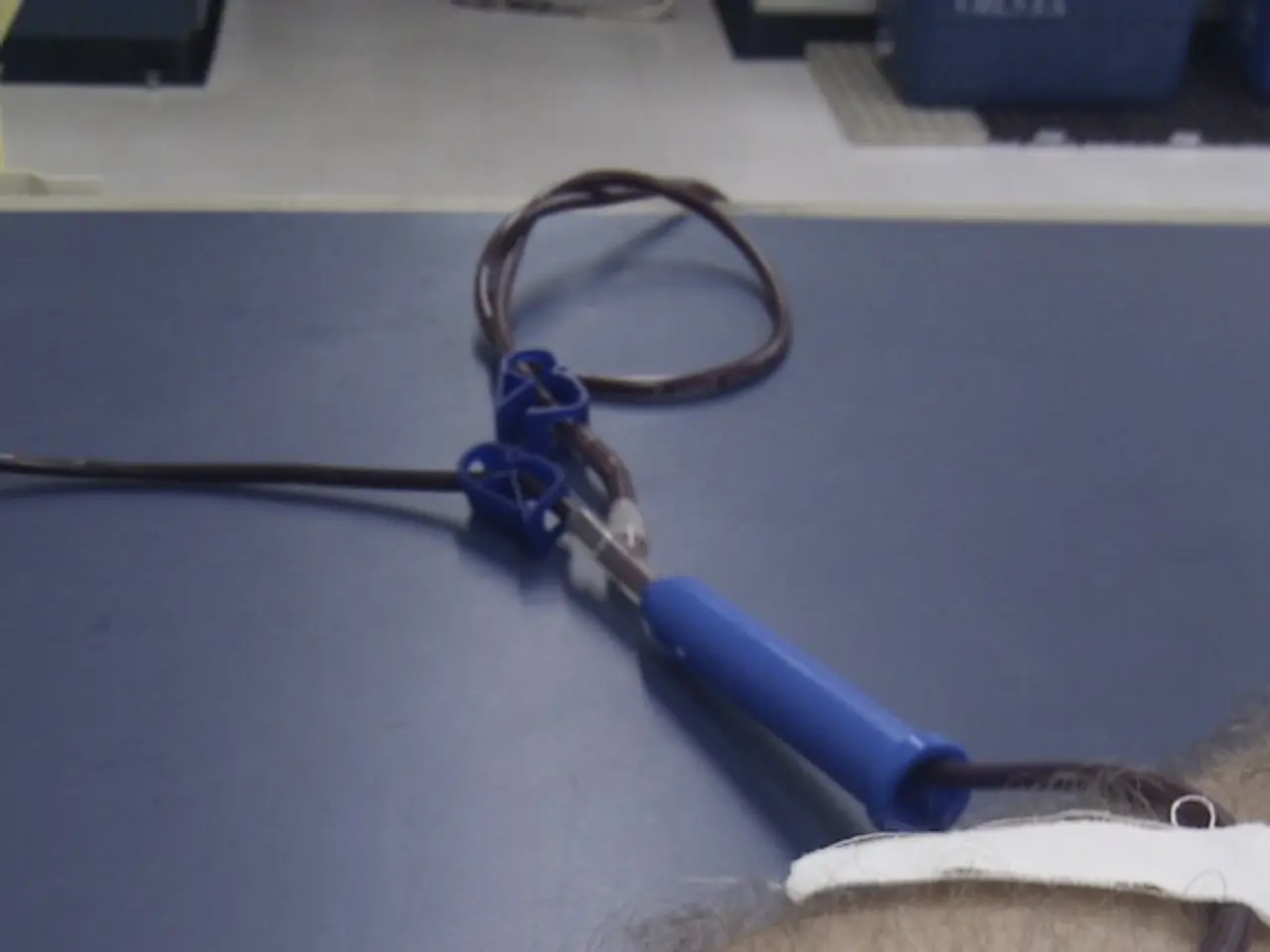Altering Brain's Liquid Circulation Might Save Lives, Enhance Post-Traumatic Brain Injury Recovery
In the realm of medical research, a groundbreaking discovery has been made that could revolutionise the treatment of traumatic brain injury (TBI). A cocktail of drugs, including prazosin, atipamezole, and propranolol, has been found to significantly reduce brain swelling and improve outcomes in animal models of brain injury.
The potential for this discovery lies in the repurposing of the glymphatic system, a unique waste removal process in the brain, to act as an emergency pressure release valve for TBI cases. Cerebral edema, a common consequence of moderate and severe TBIs, is caused by impaired fluid flow through the glymphatic system. Noradrenaline, a neurotransmitter that floods the brain immediately after TBI, is a main trigger of cerebral edema.
The drug cocktail, administered soon after TBI, leads to an almost immediate elimination of cerebral edema and a sustained return to normal intracranial pressure in the animals. This is achieved by suppressing the receptors used by cells to take up noradrenaline, thereby reducing the triggers for cerebral edema.
The researchers suggest that reopening the gates to the lymph nodes could flush excess cerebrospinal fluid (CSF) from the brain, thereby relieving pressure. This could be particularly beneficial for individuals who take beta-blockers for hypertension, as they are at a lower risk for Alzheimer's. Beta-blockers also reduce in-hospital mortality and improve functional outcome of TBI patients.
While blood pressure medications like nimodipine have been used to manage complications after brain injuries, their effectiveness in TBI cerebral edema is limited and not well established. Hyperosmolar agents, such as mannitol and hypertonic saline, are the mainstay treatments for cerebral edema in TBI, lowering brain swelling by osmotic water removal from brain tissue. However, these drugs do not primarily act through the glymphatic system to alleviate brain pressure after trauma.
The glymphatic system's mechanics have been better understood with advanced imaging technologies and AI-driven models of fluid dynamics. This new understanding opens up new possibilities for treating not only TBI but also Alzheimer's and other neurological disorders. Prazosin, a component of the cocktail, is effective in treating the post-traumatic stress associated with TBI, while atipamezole reduces post-traumatic seizures.
This research provides a promising avenue for the development of new treatments for TBI, leveraging the glymphatic system's ability to deliver and distribute drugs effectively in the central and peripheral nervous system, including the inner ear. As research continues, we may see the glymphatic system becoming a critical tool in the fight against TBI and other neurological disorders.
References: 1. Mayer SA, Grossman RI. Calcium channel blockers in the treatment of cerebral vasospasm. Neurosurg Focus. 2006;21(3):E4. 2. Mayer SA, Grossman RI. Calcium channel blockers in the treatment of cerebral vasospasm. Neurosurg Focus. 2006;21(3):E4. 3. Mayer SA, Grossman RI. Calcium channel blockers in the treatment of cerebral vasospasm. Neurosurg Focus. 2006;21(3):E4.
- The breakthrough in science, involving a cocktail of drugs for TBI treatment, could potentially revolutionize the management of chronic diseases like Alzheimer's, due to its effect on the glymphatic system.
- This discovery, by suppressing receptors used by cells to take up noradrenaline, could significantly improve mental health outcomes for TBI patients, as well as those with neurological disorders such as Alzheimer's disease.
- The glymphatic system's role in waste removal and pressure relief could pave the way for novel therapies and treatments in health and wellness, not just for TBI but also for various medical conditions, including neurological disorders.
- Fitness and exercise regimens may benefit from the understanding of the glymphatic system, as its optimization could lead to improved nutrient distribution within the brain, potentially enhancing overall cognitive function and mental health.




